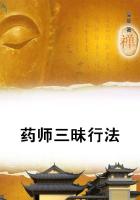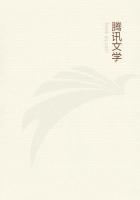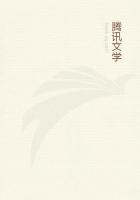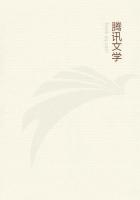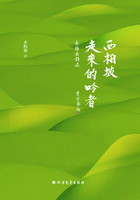In his bibliographical notes (a volume seldom met with now) the learned William Davis records that Louis Elzevir was the first who observed the distinction between the v consonant and the u vowel, which distinction, however, had been recommended long before by Ramus and other writers, but had never been regarded.
There were five of these Elzevirs, viz.: Louis, Bonaventure, Abraham, Louis, Jr., and Daniel.
A hundred years ago a famous bibliophile remarked: ``The diminutiveness of a large portion, and the beauty of the whole, of the classics printed by the Elzevirs at Leyden and Amsterdam have long rendered them justly celebrated, and the prices they bear in public sales sufficiently demonstrate the estimation in which they are at present held.''
The regard for these precious books still obtains, and we meet with it in curiously out-of-the-way places, as well as in those libraries where one would naturally expect to find it. My young friend Irving Way (himself a collector of rare enthusiasm) tells me that recently during a pilgrimage through the state of Texas he came upon a gentleman who showed him in his modest home the most superb collection of Elzevirs he had ever set eyes upon!
How far-reaching is thy grace, O bibliomania! How good and sweet it is that no distance, no environment, no poverty, no distress can appall or stay thee. Like that grim spectre we call death, thou knockest impartially at the palace portal and at the cottage door. And it seemeth thy especial delight to bring unto the lonely in desert places the companionship that exalteth humanity!
It makes me groan to think of the number of Elzevirs that are lost in the libraries of rich parvenus who know nothing of and care no thing for the treasures about them further than a certain vulgar vanity which is involved. When Catherine of Russia wearied of Koritz she took to her affection one Kimsky Kossakof, a sergeant in the guards. Kimsky was elated by this sudden acquisition of favor and riches. One of his first orders was to his bookseller. Said he to that worthy: ``Fit me up a handsome library; little books above and great ones below.''
It is narrated of a certain British warrior that upon his retirement from service he bought a library en bloc, and, not knowing any more about books than a peccary knows of the harmonies of the heavenly choir, he gave orders for the arrangement of the volumes in this wise: ``Range me,'' he quoth, ``the grenadiers (folios) at the bottom, the battalion (octavos)in the middle, and the light-bobs (duodecimos) at the top!''
Samuel Johnson, dancing attendance upon Lord Chesterfield, could hardly have felt his humiliation more keenly than did the historian Gibbon when his grace the Duke of Cumberland met him bringing the third volume of his ``Decline and Fall of the Roman Empire'' to the ducal mansion. This history was originally printed in quarto; Gibbon was carrying the volume and anticipating the joy of the duke upon its arrival. What did the duke say? ``What?'' he cried. ``Ah, another ---- big square book, eh?''
It is the fashion nowadays to harp upon the degeneracy of humanity; to insist that taste is corrupted, and that the faculty of appreciation is dead. We seem incapable of realizing that this is the golden age of authors, if not the golden age of authorship.
In the good old days authors were in fact a despised and neglected class. The Greeks put them to death, as the humor seized them. For a hundred years after his death Shakespeare was practically unknown to his countrymen, except Suckling and his coterie: during his life he was roundly assailed by his contemporaries, one of the latter going to the extreme of denouncing him as a daw that strutted in borrowed plumage.
Milton was accused of plagiarism, and one of his critics devoted many years to compiling from every quarter passages in ancient works which bore a similarity to the blind poet's verses. Even Samuel Johnson's satire of ``London'' was pronounced a plagiarism.
The good old days were the days, seemingly, when the critics had their way and ran things with a high hand; they made or unmade books and authors. They killed Chatterton, just as, some years later, they hastened the death of Keats. For a time they were all-powerful. It was not until the end of the eighteenth century that these professional tyrants began to lose their grip, and when Byron took up the lance against them their doom was practically sealed.
Who would care a picayune in these degenerate days what Dr.
Warburton said pro or con a book? It was Warburton (then Bishop of Gloucester) who remarked of Granger's ``Biographical History of England'' that it was ``an odd one.'' This was as high a compliment as he ever paid a book; those which he did not like he called sad books, and those which he fancied he called odd ones.
The truth seems to be that through the diffusion of knowledge and the multiplicity and cheapness of books people generally have reached the point in intelligence where they feel warranted in asserting their ability to judge for themselves. So the occupation of the critic, as interpreted and practised of old, is gone.
Reverting to the practice of lamenting the degeneracy of humanity, I should say that the fashion is by no means a new one.
Search the records of the ancients and you will find the same harping upon the one string of present decay and former virtue.
Herodotus, Sallust, Caesar, Cicero, and Pliny take up and repeat the lugubrious tale in turn.
Upon earth there are three distinct classes of men: Those who contemplate the past, those who contemplate the present, those who contemplate the future. I am of those who believe that humanity progresses, and it is my theory that the best works of the past have survived and come down to us in these books which are our dearest legacies, our proudest possessions, and our best-beloved companions.

